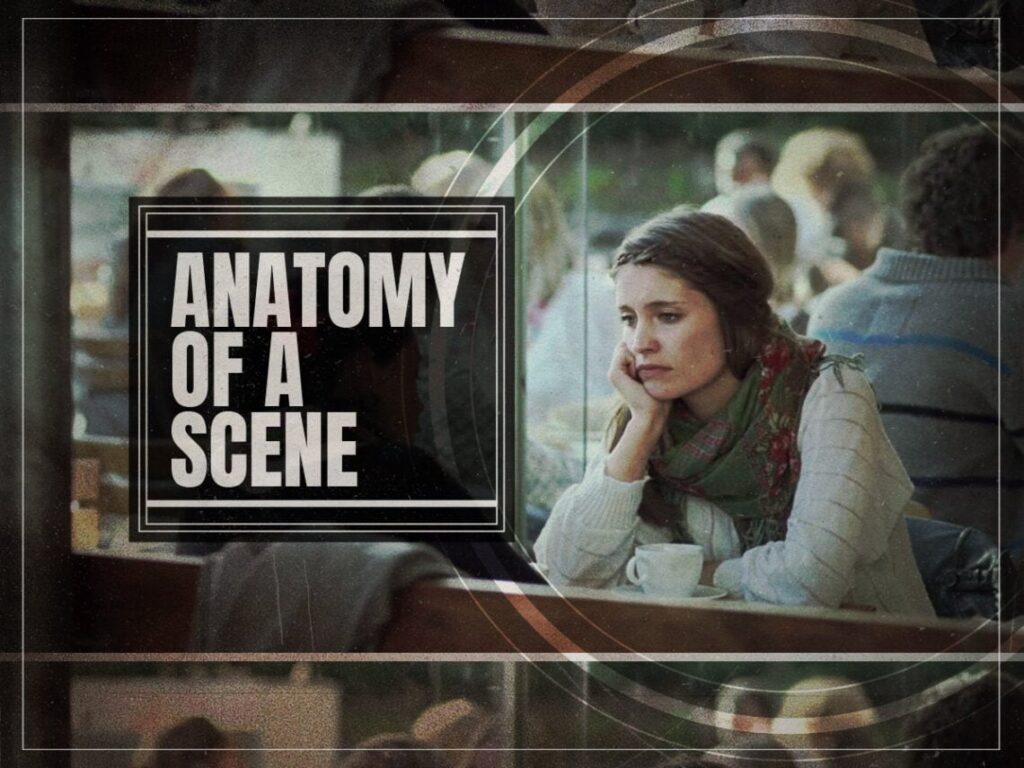Anatomy of a Scene: Joachim Trier’s café moment in ‘Oslo, August 31st’
 Posted On
Posted On
(Credits: Far Out / Nordisk Film Distribusjon)
While Joachim Trier has reached new audiences in recent years with his soaring portrait of 20s turbulence and romantic chaos in The Worst Person in the World, the Danish-Norwegian director had previously created a reputation for melancholic and meditative films that explore characters who are questioning their purpose.
There are certainly traces of this in his 2021 project, but in his earlier works such as Reprise and Louder Than Bombs, this mood is far more pressing, with an intensely introspective and often depressing tone that encourages us to reflect on the existentialist ideas at their core. But there is one scene from his entire body of work that stands out to me and remains my favourite work from his filmography.
Oslo, August 31st, tells the devastating story of a man called Anders, who is released from rehab for one day to catch up with old friends in the city. But throughout the course of the day, we slowly realise that he is reckoning with whether or not he wants to carry on living, looking for inspiration from the people around him and realising that this might be his last day.
As he speaks to friends from his past who have all moved on with their lives since last seeing him, starting families, relationships and jobs, Trier heightens his sense of isolation in this idea that his own life has left him behind, trapped in an in-between state while everyone else is enjoying their future. However, there is one scene that captures this the most, all filmed in a café as Anders eavesdrops on multiple conversations around him.
Before meeting a family member, Anders waits alone in a café and begins observing the people around him, listening in to conversations between friends, mothers and lovers as they discuss relationship complications and creative projects and embark on a first date. It’s an overwhelming moment that feels deeply human and naturalistic, with this fragile character watching these people living their lives and the full range of human experiences but not feeling connected to anyone or being able to relate to the joy of sharing these experiences with another person. He is sitting in a room of people who are sharing the highs and lows of being alive but seem happy to be alive regardless, and he cannot relate to this feeling in any way.
In his attempt to reconnect with the world, he finds himself haunted by a feeling of hopelessness and what he feels is a pointless existence. As someone who struggles with addiction, his drug use has been a way of coping with this feeling, and after dealing with these issues, he now feels that he is so behind everyone else, and there is no point in trying to catch up. While his friends have forged meaningful connections and created expansive lives for themselves, he feels as though starting a new life is futile, and he has ruined his chance at happiness forever, haunted by his mistakes and the pains of his past.
Anders is desperate to feel something that will tether him to the world again and give him a reason to keep on living. He searches for meaning in the café scene, wanting to be inspired by the depth of human feeling and the love that the people around him feel for each other.
But the longer he looks, the more distant he feels from this feeling in his own life, feeling as though he doesn’t have this and is truly alone. He leaves the café and everything stops, with the camera only focused on him as he ventures into the world alone again, seeing and hearing everything but not truly being a part of it.
[embedded content]
Related Topics


